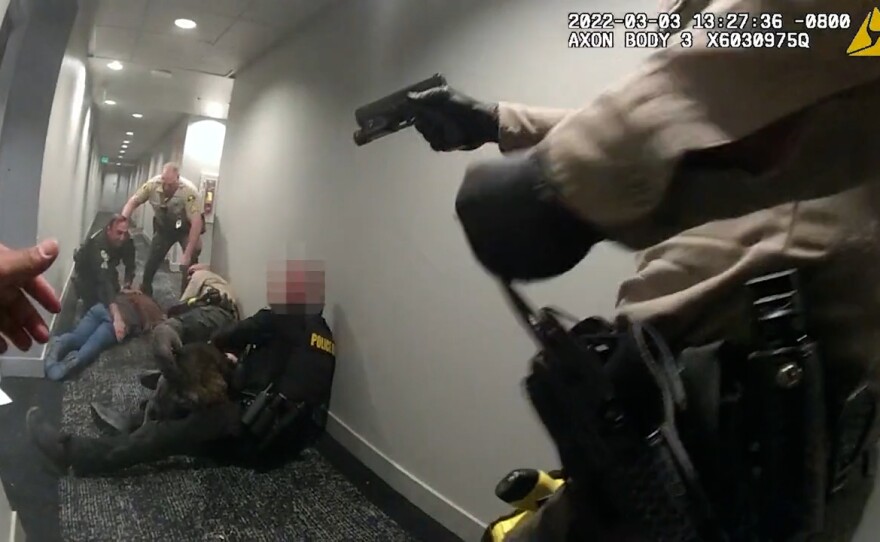The son of a woman fatally shot by sheriff's deputies and police last year at a Little Italy condo complex after she stabbed an officer filed a wrongful death lawsuit this week, which claims authorities escalated the situation while his mother was in the midst of a mental health crisis.
The lawsuit filed Monday in San Diego federal court names the city of San Diego, San Diego County and five lawmen as defendants in the March 3, 2022, death of 47-year-old Yan Li, a Yale-educated scientist.
Li stabbed a police officer during the incident and was then shot by three sheriff's deputies and a San Diego police officer.
The shooting unfolded after a deputy, Jason Bunch, served an eviction notice at Li's home and Li answered the door while holding a kitchen knife down by her side, authorities said.
Body camera footage released by the San Diego County Sheriff's Department shows Bunch pointing a gun at Li and demanding she drops the knife while Li repeatedly states that she doubts the deputy is a real law enforcement officer and yells for someone to "call the police."
According to the lawsuit, Li's behavior showed she was "exhibiting signs of being mentally ill" and "clearly in a state of mental crisis." The lawsuit also states she was holding the knife because she had been cooking when the deputy arrived.
Li closed the door on Bunch and other officers responded less than an hour later.
According to the sheriff's department, the deputies were told by the condo's manager and a maintenance worker that Li had threatened them with a knife one day earlier.
"Based on this reported crime, there was a threat to public safety," authorities said. "This is also probable cause to arrest Li for assault with a deadly weapon."
The deputies and officers then entered Li's apartment and while she was partially behind a bedroom door and still holding the knife, one of them shot at her several times with a beanbag gun.
The lawsuit states that law enforcement personnel entered the unit "under false pretenses" and at this point, Li "was inside her apartment and was not posing a threat to any person." It also states that in addition to beanbag rounds, authorities used flashbang rounds and brought a police dog.
"Rather than deploying force against decedent, the officers should have summoned mental health assistance," the complaint states.
After the less-than-lethal weapons were deployed, Li ran out of the bedroom toward police and deputies, who backpedaled out of the unit, authorities said. Upon reaching the front doorway, Li allegedly thrust the knife toward the law enforcement personnel, stabbing a dog-handling officer.
At that point, SDPD Officer Rogelio Medina and sheriff's Sgt. Daniel Nickel and Deputies Javier Medina and David Williams opened fire on Li, discharging at least a dozen rounds, and she collapsed onto the hallway floor.
The complaint alleges that officers and deputies engaged in "negligent tactics, including escalating a situation involving a mentally ill individual, failing to create an appropriate tactical plan, failing to communicate amongst themselves, failing to give a verbal warning that deadly force would be used, and entering decedent's unit under false pretenses when decedent posed no threat to any person and when the officers did not observe decedent commit any crime."











